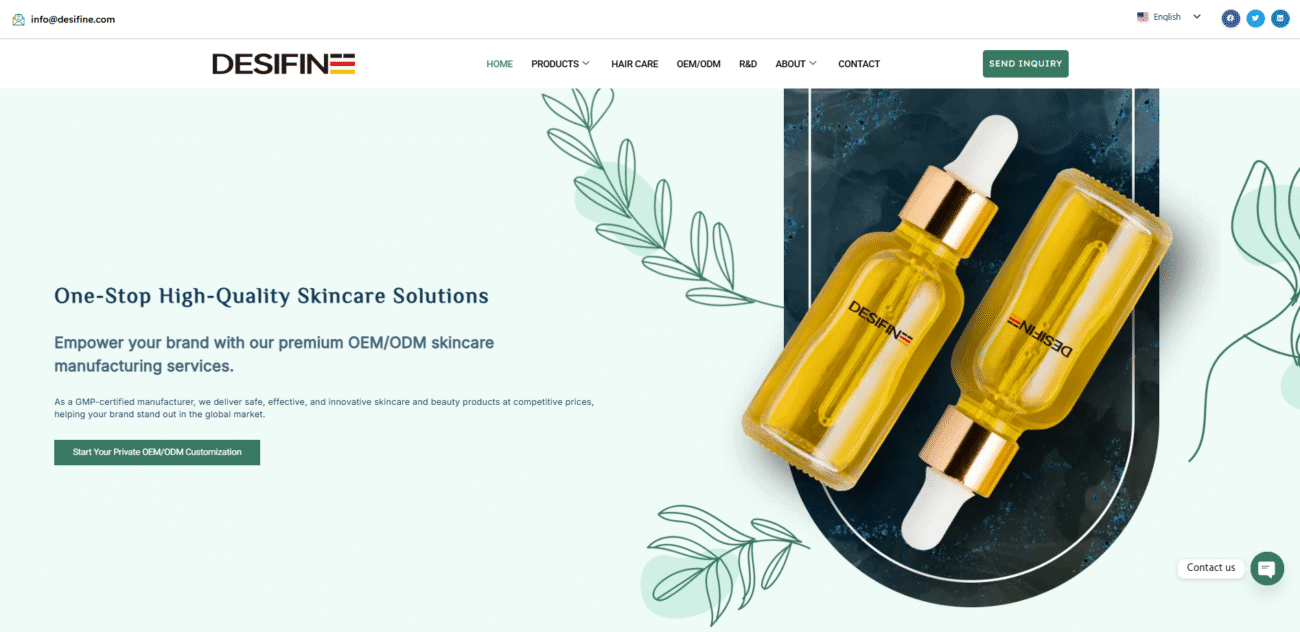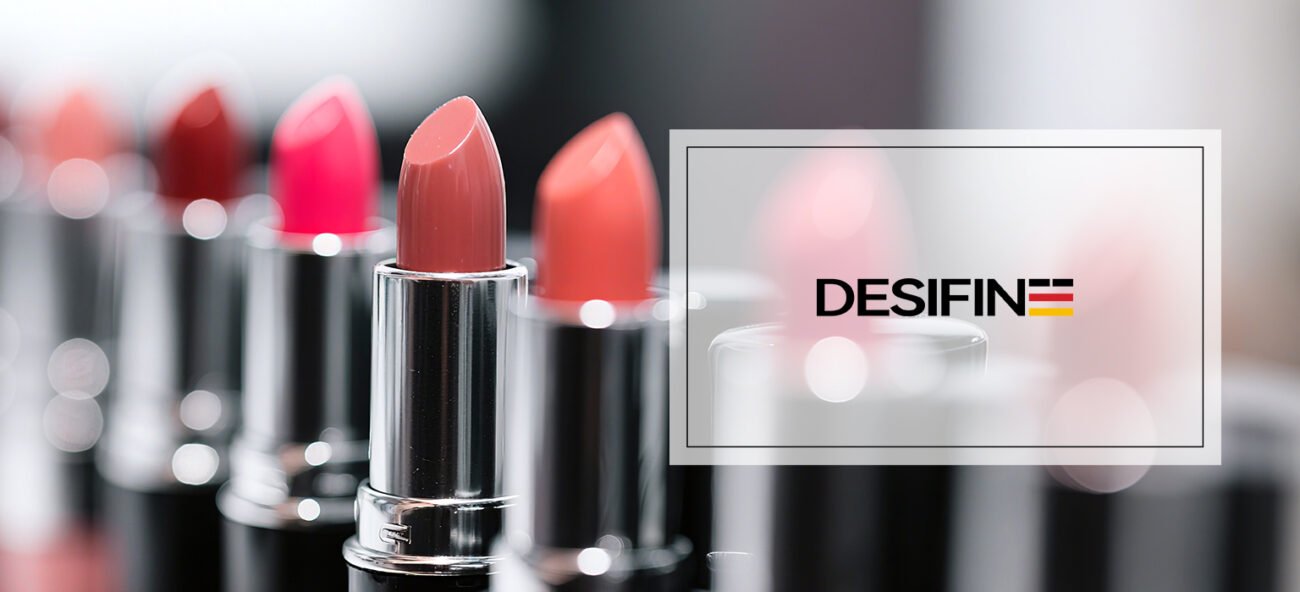Lipstick OEM manufacturers are the unsung heroes behind the booming global lipstick market—now exceeding $28 billion in scale. In fact, all the best-selling lipsticks on the market rely on these reliable partners, and from my years in the industry, I’ve found that the top five lipstick OEM manufacturers in 2024 directly hold over 60% of the market share. Each of these companies boasts unique strengths: whether you’re a new entrepreneur launching your first lipstick line, or an established brand looking to expand, understanding their modus operandi will help you avoid countless detours when selecting a partner.
Choosing the right lipstick OEM manufacturer is crucial.
Many people think OEM is just a contract manufacturer, but that’s not the case at all. A good lipstick OEM manufacturer can assist you with everything from formula R&D and compliance filing to packaging design, and even scale up production capacity on demand once sales pick up. I’ve seen many brands that, by finding the right partner, launched their products over 30% faster than their competitors while also reducing costs significantly. However, if you make a bad choice, you might either face delivery delays or inconsistent product quality—and it would be a real shame to miss the market opportunity as a result. If you want to understand the overall industry trends, it’s recommended to check out the global beauty OEM market report, which contains comprehensive data.
Each of these five leading lipstick OEM manufacturers has its own strengths.
1.Intercos (Italy)

When it comes to high-end lipstick production, Intercos is an absolute must-mention name. With over 40 years of history, this brand manufactures lipsticks for many top-tier labels like Dior and Chanel. It’s no exaggeration to call it the “gold standard” in high-end OEM manufacturing.
I’ve spoken to their team, and they have a R&D team of over 500 people, developing more than 200 patented formulas every year. Trends like velvety matte and airy textures are their specialties—perfectly tailored to the preferences of high-end consumers. What’s most convenient is their production bases across Europe, America, and Asia. Whether you’re targeting the European or Asian market, you can produce locally, with lead times typically ranging from 7 to 10 days, so you won’t have to wait long. Moreover, their compliance is highly reliable, holding full certifications including EU GMPC and ISO 22716. Exporting to the US and passing FDA inspections is also smooth. For specific regulatory requirements, you can check the FDA Cosmetics Regulation page.
However, their minimum order quantity (MOQ) is not low, usually starting at 5,000 units. They also offer free high-end packaging design services. If you’re looking to launch luxury cosmetics, high-end salon lines, or enter department stores, Intercos is the right choice.
2.DESIFINE (Sino-German Joint Venture)

For friends who are just starting a business or running an e-commerce business, I usually recommend DESIFINE. The biggest advantage of this lipstick OEM manufacturer is its flexibility, and it understands the difficulties of small brands particularly well.
What do newbies fear most when making lipsticks? High minimum order quantities—if the products fail to sell, they’ll end up stuck with inventory. DESIFINE has a minimum order quantity of just 1,000 units, and there are no hidden charges for formula adjustments, significantly lowering the cost of trial and error. Moreover, it has a sharp eye for market trends: for the European and American markets, it focuses on matte textures; for the Asian market, it specializes in hydrating lip glosses; and it can quickly keep up with popular shades. I have a client who started with small orders on Amazon, and when sales later skyrocketed, DESIFINE’s monthly production capacity of 5 million units was able to keep up. There was no need to switch suppliers, saving a lot of trouble.
Normally, delivery can be completed in 5 to 8 days, and it also offers 3 free shade samples for testing. It’s really friendly for DTC brands, e-commerce sellers, and small to medium-sized teams.
3.Kolmar (South Korea)

Friends who love K-beauty definitely know Kolmar—many of the popular lipsticks from brands like Amorepacific and 3CE are its creations. This lipstick OEM manufacturer understands young people perfectly, so it’s the go-to choice if you want to make K-style lipsticks.
Its biggest strength lies in texture craftsmanship. It excels at replicating trending Korean textures like glass lips, velvet mousse, and tinted lip liquids with exceptional accuracy. What’s more, it can incorporate skincare ingredients such as hyaluronic acid and collagen into the formulas, perfectly tapping into the “skincare-infused makeup” trend. Its packaging design is also impressive—sleek and photogenic, making young consumers eager to share it on social media. Additionally, its products meet both South Korea’s KFDA standards and EU regulations. For details on South Korea’s cosmetic regulations, you can refer to the KFDA official website.
The minimum order quantity is usually 2,000 units, with delivery in 7 to 10 days. If you want to launch trendy cosmetics, create a YouTuber/influencer-owned brand, or enter beauty retailers like Sephora, choosing Kolmar is sure to make your products stand out.
4.HCT Group (China)

If you’re developing private labels for supermarkets or cosmeceutical stores, or need large-volume supply, the HCT Group is a must-focus on. This company is a global leader in mass-producing affordable lipsticks—nine times out of ten, the affordable lipstick lines in chain stores like Walmart and CVS are manufactured by them.
I’ve visited their factory: it has fully automated production lines that can churn out 300 lipsticks per minute. Bulk raw material procurement also helps lower costs, so they have a strong price advantage. What’s most reassuring is their efficiency: urgent orders for restocking before holidays can be fulfilled in 3 days, and regular orders can be completed within 5 days. Moreover, they handle everything from raw material procurement to finished product packaging—there’s no need to coordinate with multiple suppliers, saving a ton of hassle.
However, their minimum order quantity (MOQ) is relatively high, starting at over 10,000 units. They can also help design packaging suitable for supermarket shelves and create barcodes. When it comes to fast-moving consumer goods (FMCG) cosmetics or supermarket private labels, their cost-effectiveness is truly unbeatable.
5.Cosmetica Milano (Italy)
Nowadays, “clean beauty” is becoming increasingly popular, and many brands are looking to tap into this trend—Cosmetica Milano is the perfect fit for this. This lipstick OEM manufacturer specializes in organic and sustainable lipsticks, and has long been a contract manufacturer for brands like Lush and The Body Shop, enjoying an excellent reputation in the clean beauty circle.
All of their raw materials are organic ingredients dual-certified by ECOCERT and USDA, such as beeswax and plant essential oils, with no synthetic pigments or preservatives. You can immediately feel the difference when you hold their products. The production process is also environmentally friendly: the factory uses 100% renewable energy, and even offers biodegradable packaging. Most importantly, they can provide you with a complete raw material traceability report, which makes your claim of “clean ingredients” to consumers highly credible when presented.
However, due to the organic certification process, lead times are a bit longer—12 to 15 days for production—and the minimum order quantity is 3,000 units. If your brand focuses on clean beauty, environmental sustainability, or if you’re a natural skincare brand looking to expand into the 彩妆 line, Cosmetica Milano is definitely a reliable choice.
A table to clearly see the core differences among the five, so you won’t hesitate when choosing.
| Manufacturer Name | Strength | Minimum Order Quantity (MOQ) | Who it’s suitable for |
| Intercos (Italy) | High-end R&D + Global Layout | 5000 pieces | Luxury Cosmetics, High-end Salons |
| DESIFINE (Sino-German Joint Venture) | Small-batch Trial Production + Flexibility | 1000 pieces | Startups, E-commerce |
| Kolmar (South Korea) | Korean-style Trends + Design | 2000 pieces | Trendy Brands, Specialty Stores |
| HCT Group (China) | Mass Production + Low Price | 10000 pieces | Supermarkets, FMCG |
| Cosmetica Milano (Italy) | Organic Purity + Compliance | 3000 pieces | Clean Beauty, Eco-Friendly Brands |
Three Practical Tips for Choosing a Lipstick OEM Manufacturer
- First, clarify what you want to do: Don’t blindly chase big-name manufacturers. If you want to make high-end products, focus on Intercos; if you’re just starting out, go for DESIFINE; if you’re doing clean beauty, choose Cosmetica Milano. First, align your positioning with the other party’s strengths.
- Choose the scale based on sales volume, and don’t overreach: If you’re unsure about the market at the beginning, test the waters with small orders of 1,000-3,000 units from DESIFINE or Cosmetica Milano; if you already have stable channels and need large-volume supply, HCT Group has the most advantages in terms of efficiency and cost.
- Compliance is non-negotiable: No matter which market you sell to, you must ask the other party to provide compliance certificates — for exports to the EU, you need to meet EC 1223/2009 (you can refer to the official website of the EU Cosmetics Regulation for details); for exports to the US, you must comply with the FDA. It’s also advisable to request a third-party test report; otherwise, it will be a huge loss if the product gets stuck before being put on the shelves.
In fact, there’s no absolute “good” or “bad” when choosing a lipstick OEM manufacturer; the key is that it “fits your needs”. Hope these experiences can help you avoid detours and launch your own blockbuster lipstick soon!


